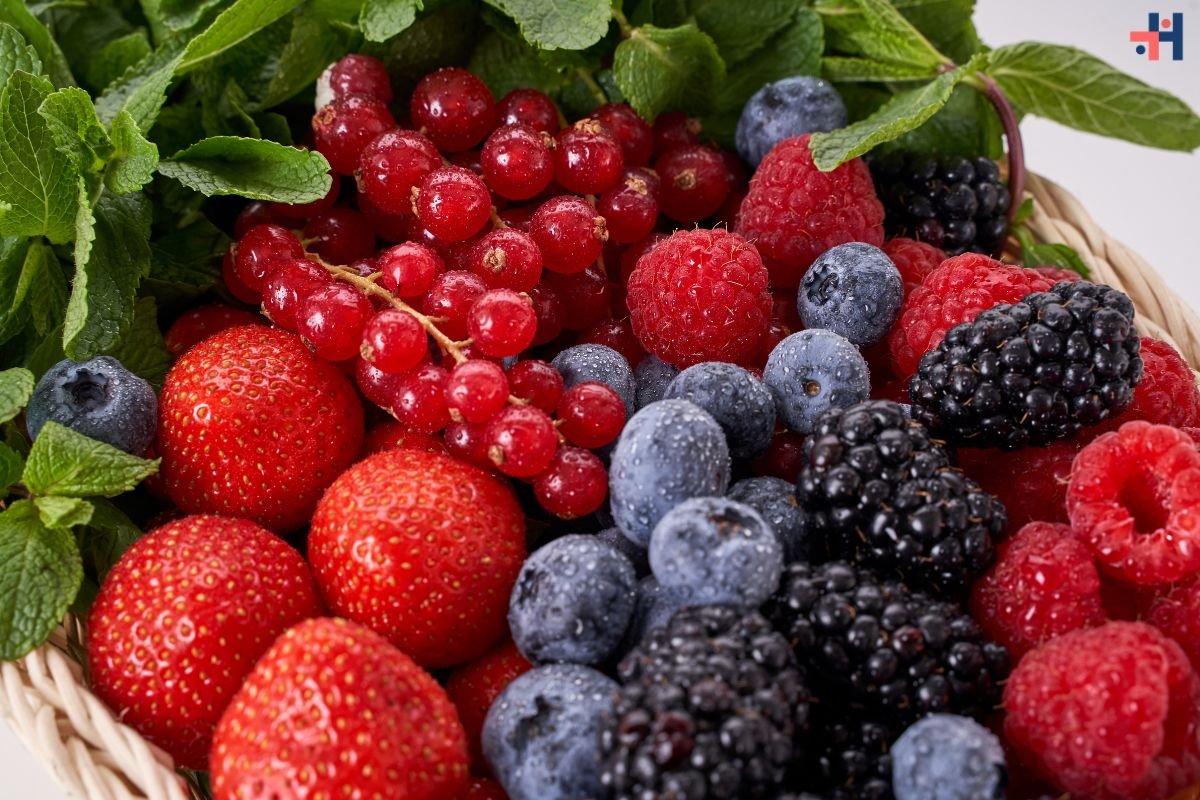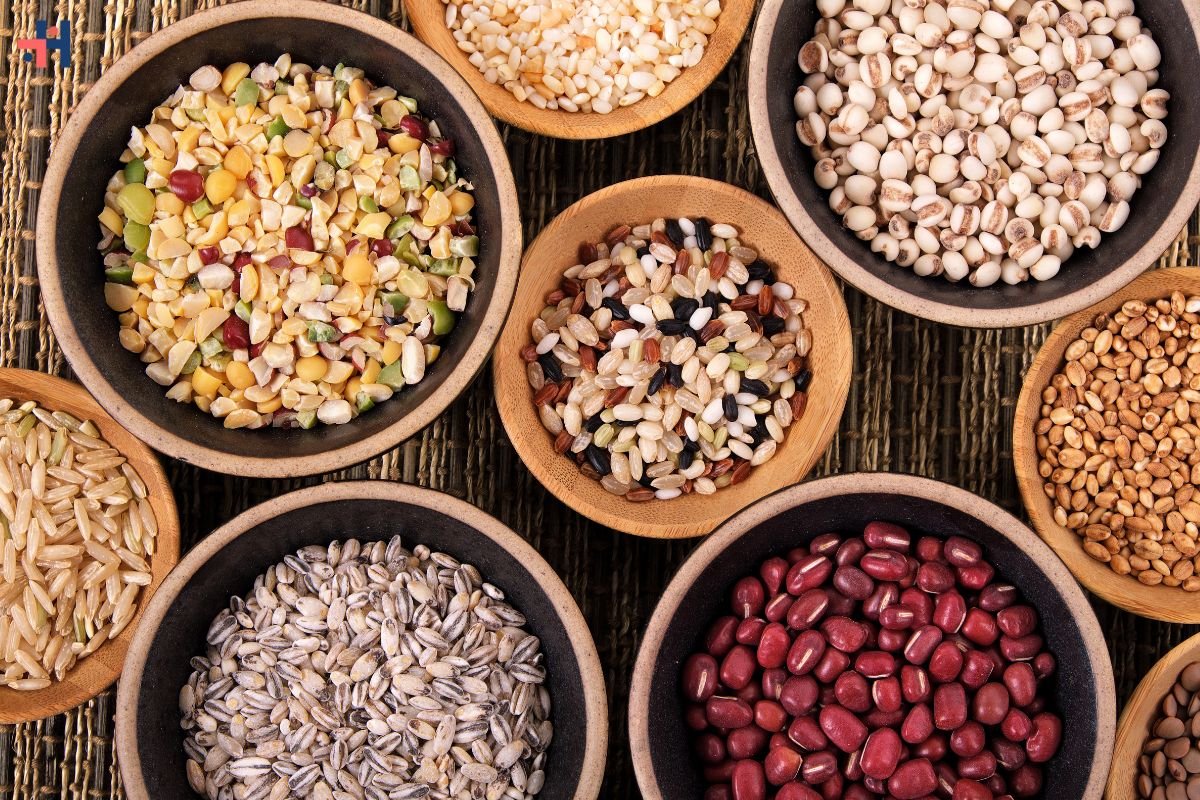Amidst the hustle and bustle of daily life, it’s crucial to nourish our bodies with nutrient-rich foods that support overall well-being. One key component of a healthy diet is incorporating food that is rich in antioxidants. These powerful compounds play a vital role in protecting our cells from oxidative damage, reducing inflammation, and lowering the risk of chronic diseases. In this comprehensive guide, we’ll delve deeper into the importance of antioxidants and explore a wide range of foods that are abundant in these health-promoting nutrients.
Understanding Antioxidants:
Antioxidants are molecules that neutralize harmful free radicals in the body, thereby protecting cells from oxidative damage. Free radicals are unstable molecules produced as a byproduct of normal metabolic processes, as well as from external sources such as pollution, UV radiation, and unhealthy dietary choices. When left unchecked, free radicals can cause oxidative stress, which has been linked to various health issues, including inflammation, heart disease, cancer, and accelerated aging. Antioxidants work by donating electrons to free radicals, thereby stabilizing them and preventing cellular damage.
Importance of Food that is Rich in Antioxidants:
Incorporating antioxidant-rich foods into your diet is essential for promoting optimal health and longevity. These foods offer a myriad of health benefits, including:

- Reduced Risk of Chronic Diseases: Research suggests that food that is rich in antioxidants may help lower the risk of chronic diseases such as heart disease, diabetes, Alzheimer’s disease, and certain types of cancer. Antioxidants help protect cells from damage caused by free radicals, thereby reducing inflammation and supporting overall health.
- Enhanced Immune Function: Antioxidants play a crucial role in supporting a healthy immune system by protecting immune cells from oxidative stress and inflammation. By bolstering immune function, antioxidants help the body fend off infections and illnesses more effectively.
- Anti-Aging Effects: Oxidative stress and inflammation are major contributors to the aging process. Antioxidants help combat these processes by neutralizing free radicals and reducing cellular damage. By promoting cellular repair and regeneration, antioxidants can help slow down the aging process and keep skin looking youthful and vibrant.
- Cardiovascular Health: Many antioxidants, such as flavonoids, polyphenols, and vitamins C and E, have been shown to support heart health by reducing inflammation, improving blood vessel function, and lowering blood pressure and cholesterol levels. By protecting against oxidative damage and inflammation, antioxidants help reduce the risk of heart disease and stroke.
- Brain Health and Cognitive Function: Some antioxidants, particularly flavonoids and polyphenols found in fruits, vegetables, and tea, have been linked to improved brain health and cognitive function. These compounds help protect brain cells from oxidative damage, reduce inflammation, and promote healthy blood flow to the brain, thereby supporting memory, learning, and overall cognitive function.
Top Antioxidant-Rich Foods:
Now that we understand the importance of antioxidants, let’s explore some of the top food sources:
- Berries: Berries such as blueberries, strawberries, raspberries, and blackberries are among the most antioxidant-rich foods available. These colorful fruits are packed with a variety of antioxidants, including anthocyanins, flavonoids, and vitamin C.

- Dark Chocolate: Dark chocolate is one of the food that is rich in antioxidants, particularly flavonoids called cocoa flavanols. These compounds have been shown to have potent antioxidant properties and may offer numerous health benefits, including improved heart health and cognitive function.
- Nuts and Seeds: Nuts and seeds are excellent sources of antioxidants, healthy fats, and protein. Almonds, walnuts, flaxseeds, chia seeds, and pumpkin seeds are particularly food that is rich in antioxidants, such as vitamin E, selenium, and various polyphenols.
- Leafy Greens: Leafy greens such as spinach, kale, Swiss chard, collard greens, and arugula are nutrient powerhouses that provide an abundance of antioxidants, vitamins, and minerals. These vegetables are particularly rich in antioxidants like vitamins A, C, and K, as well as various phytonutrients.
- Fruits: In addition to berries, many other fruits are rich in antioxidants. Oranges, lemons, kiwi, mangoes, papayas, grapes, and pomegranates are excellent sources of antioxidants like vitamin C, beta-carotene, and various polyphenols.
- Vegetables: Colorful vegetables like bell peppers, tomatoes, carrots, sweet potatoes, broccoli, and Brussels sprouts are loaded with antioxidants, vitamins, minerals, and dietary fiber. Including a variety of colorful vegetables in your diet ensures a diverse range of antioxidants and other nutrients.
- Herbs and Spices: Herbs and spices are concentrated sources of antioxidants and other bioactive compounds. Turmeric, cinnamon, ginger, cloves, oregano, thyme, and rosemary are particularly food that is rich in antioxidants and have been associated with numerous health benefits, including reduced inflammation and improved immune function.
- Green Tea: Green tea is renowned for its high antioxidant content, particularly a group of antioxidants called catechins. These compounds have potent antioxidant and anti-inflammatory properties and may offer protection against various chronic diseases, including heart disease, cancer, and neurodegenerative disorders.
- Legumes: Beans, lentils, chickpeas, and peas are excellent sources of antioxidants, fiber, and plant-based protein. These versatile legumes provide a wide range of antioxidants, vitamins, minerals, and phytonutrients, making them a valuable addition to any diet.
- Whole Grains: Whole grains like quinoa, brown rice, oats, barley, and bulgur are food that is rich in antioxidants, vitamins, minerals, and dietary fiber. These nutritious grains offer a wide range of health benefits, including improved digestion, reduced inflammation, and lower risk of chronic diseases like heart disease and type 2 diabetes.
Also Read: A Low Cholesterol Diet: Tips, Recipes, and Benefits
Incorporating Antioxidant-Rich Foods into Your Diet:
Now that we’ve identified some of the top antioxidant-rich foods, let’s discuss practical ways to incorporate them into your daily meals:
- Start your day with a nutritious breakfast that includes antioxidant-rich foods such as berries, nuts, seeds, and whole grains. Consider adding berries to your oatmeal or yogurt, sprinkling nuts and seeds on top of your cereal or smoothie, or enjoying whole grain toast with avocado and sliced tomatoes.
- Snack on fresh fruits, vegetables, nuts, and seeds throughout the day to boost your antioxidant intake and satisfy hunger between meals. Keep a bowl of mixed berries or sliced vegetables in the fridge for easy snacking, and carry portable snacks like trail mix or fruit and nut bars when you’re on the go.
- Incorporate leafy greens into your salads, sandwiches, wraps, soups, and stir-fries for a nutrient-packed boost. Choose a variety of greens such as spinach, kale, arugula, and Swiss chard, and pair them with colorful vegetables, fruits, nuts, seeds, and lean protein sources for a well-rounded meal.

- Experiment with herbs and spices to add flavor and antioxidant-rich compounds to your meals. Use turmeric, ginger, garlic, cumin, cinnamon, and chili powder to season your dishes, and try making homemade spice blends and marinades for added variety and depth of flavor.
- Enjoy a serving of dark chocolate as a delicious and antioxidant-rich treat. Choose high-quality dark chocolate with a cocoa content of 70% or higher, and savor a square or two as a satisfying dessert or afternoon pick-me-up.
- Swap refined grains for whole grains in your meals to boost your antioxidant and fiber intake. Choose whole grain options such as brown rice, quinoa, barley, bulgur, whole wheat bread, and whole grain pasta, and use them as the base for salads, grain bowls, casseroles, and side dishes.
- Brew a cup of green tea to enjoy as a soothing beverage or incorporate it into your favorite recipes. Green tea can be enjoyed hot or cold and makes a refreshing addition to smoothies, iced teas, cocktails, and desserts.
- Experiment with plant-based protein sources like beans, lentils, chickpeas, and tofu to increase your antioxidant intake while reducing your consumption of animal products. Incorporate these nutritious ingredients into soups, stews, salads, curries, and stir-fries for a flavorful and satisfying meal.
Conclusion:
Incorporating antioxidant-rich foods into your diet is a simple yet effective way to support overall health and well-being. By prioritizing nutrient-dense foods like berries, dark chocolate, nuts, seeds, leafy greens, fruits, vegetables, herbs, spices, green tea, legumes, and whole grains, you can boost your antioxidant intake, reduce inflammation, and lower your risk of chronic diseases. Remember to choose a variety of colorful foods and experiment with different ingredients and recipes to keep your meals exciting and enjoyable. With a balanced and diverse food that is rich in antioxidants, you can nourish your body, protect your cells, and thrive at every stage of life.










